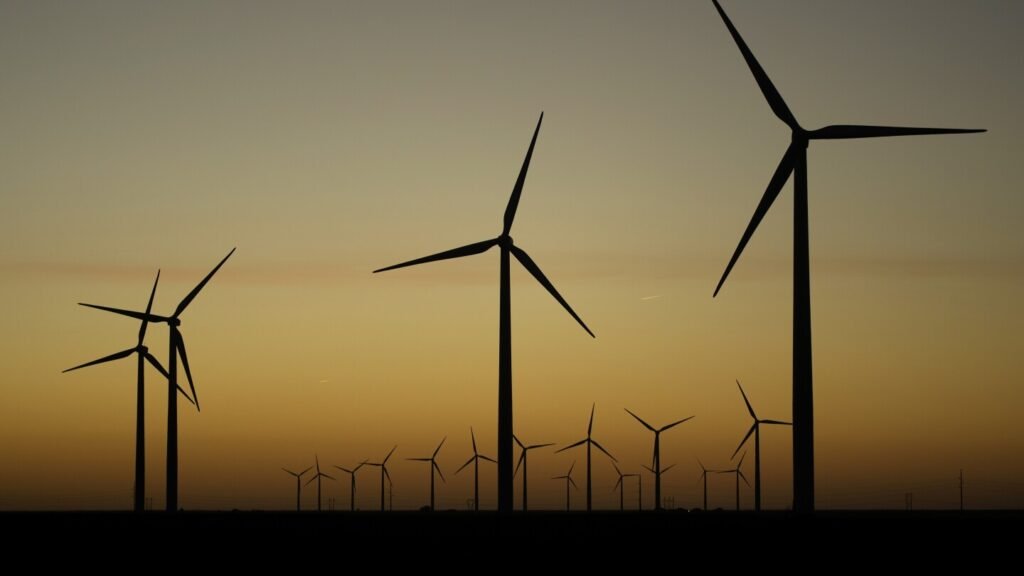WASHINGTON (news agencies) — Clean energy advocates were already bracing for a Republican-led bill that would phase out tax credits for wind, solar and other renewable energy as President Donald Trump and GOP lawmakers moved to dismantle the 2022 climate law passed by Democrats under former President Joe Biden.
But a proposal that emerged over the weekend was even more drastic than they thought.
It was more aggressive in ending incentives for clean energy than a previous Senate version and would even impose new taxes on some wind and solar projects while boosting production of coal used in steelmaking. The Senate was moving Monday to approve Trump’s big bill of tax breaks and spending cuts even as Democrats lined up to challenge it.
The GOP plan is “a death sentence for America’s wind and solar industries” that will lead to a spike in Americans’ utility bills and jeopardize hundreds of renewable energy projects slated to boost the nation’s electric grid, said Oregon Sen. Ron Wyden, the top Democrat on the Senate Finance Committee.
“Their plan started out as a phase-down of the tax credits I wrote for wind and solar” in the 2022 climate law, Wyden said. “But now they’re proposing an outright massacre with punishing new taxes on these industries that happen to be the cheapest and easiest ways to get new energy on the grid.”
Republicans said the tax-cut bill represents historic savings for taxpayers and supports production of traditional fossil-fuel energy sources such as oil, natural gas and coal, as well as nuclear power, increasing reliability.
“To achieve this record level of savings, we are slashing Biden’s Green New Deal spending and promoting America-First energy,’’ Idaho Sen. Mike Crapo, chairman of the Senate Finance panel and a lead architect of the bill, said in a statement.
“We stop penalizing fossil fuels in favor of unreliable and expensive green energy, and instead support consistent energy sources, making energy affordable again.” Crapo said.
The Senate bill eliminates “hundreds of billions of dollars of the Green New Deal subsidies, including ending wasteful credits like the EV tax credit,” he added, referring to a Democratic measure included the climate law to provide incentives for electric vehicles, which don’t emit planet-warming greenhouse gases.
Some moderate senators, such as Sen. John Curtis, R-Utah, were seeking to strip the new tax on wind and solar and make other changes, but it was unclear whether those proposals would advance.
“Taxing energy production is never good policy, whether oil & gas or, in this case, renewables,’’ said Neil Bradley, executive vice president of the U.S. Chamber of Commerce. “Electricity demand is set to see enormous growth & this tax will increase prices. It should be removed.”
If approved unchanged, the measure will kill investment in renewable energy and jeopardize hundreds of gigawatts of new power supply that would otherwise help the U.S. meet rapidly rising electricity demand as data centers, artificial intelligence and other growing uses strain the power grid, environmental advocates said.
The GOP plan would “lock in higher household energy bills, kill American jobs … and torch our future,’’ said Mattea Mrkusic, who leads energy policy for the environmental group Evergreen Action.
The bill would cut off climate law credits for projects that aren’t “placed in service” — that is, plugged into the grid — by the end of 2027. That timeline is more aggressive than previous proposals that set deadlines for projects to begin construction in order to receive the credit. The new standard is virtually impossible for most projects to meet, advocates said.
The legislation also blocks credits for companies using components from adversaries such as China and adds a new tax on wind and solar projects that don’t follow certain supply chain rules.
